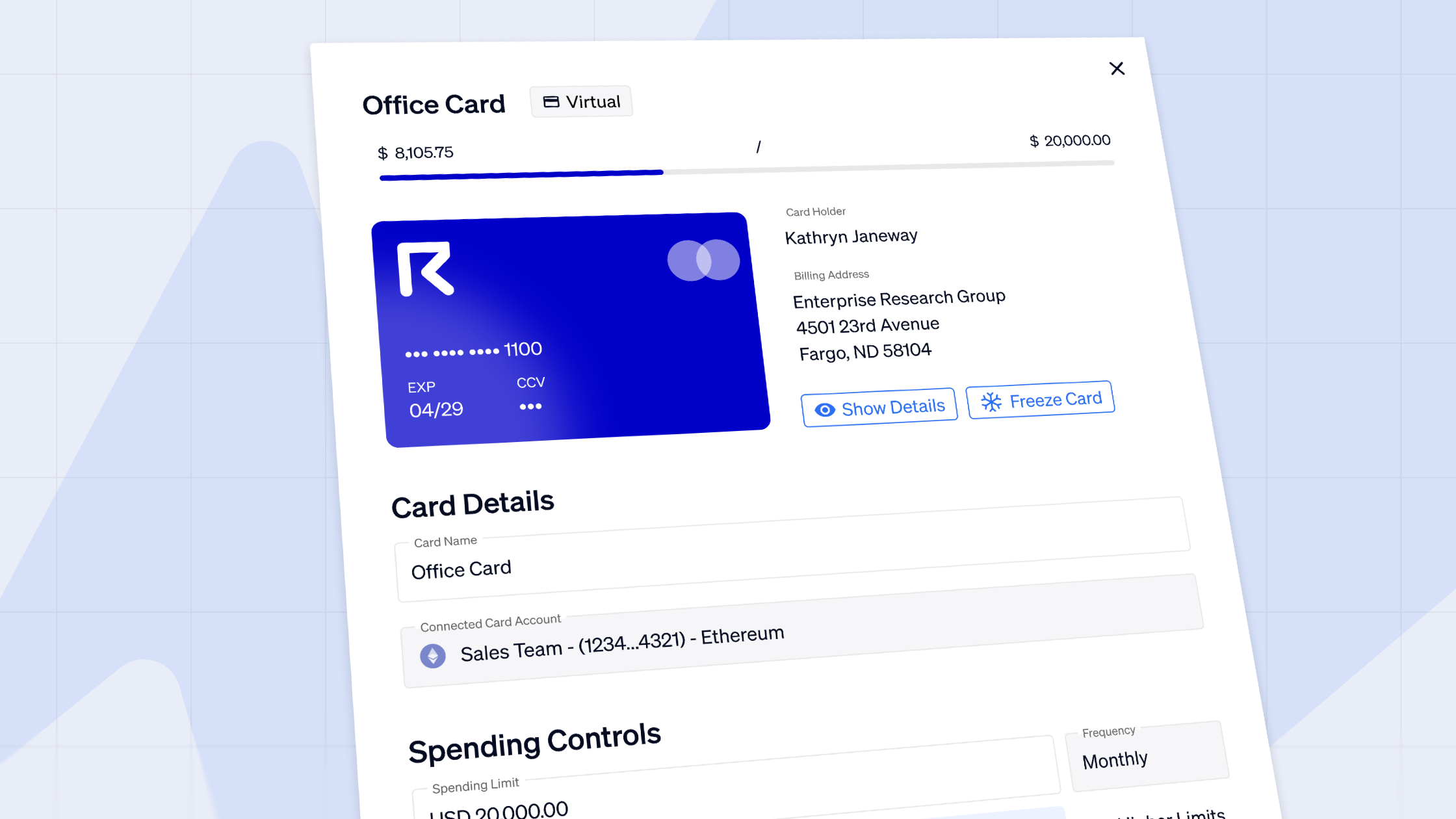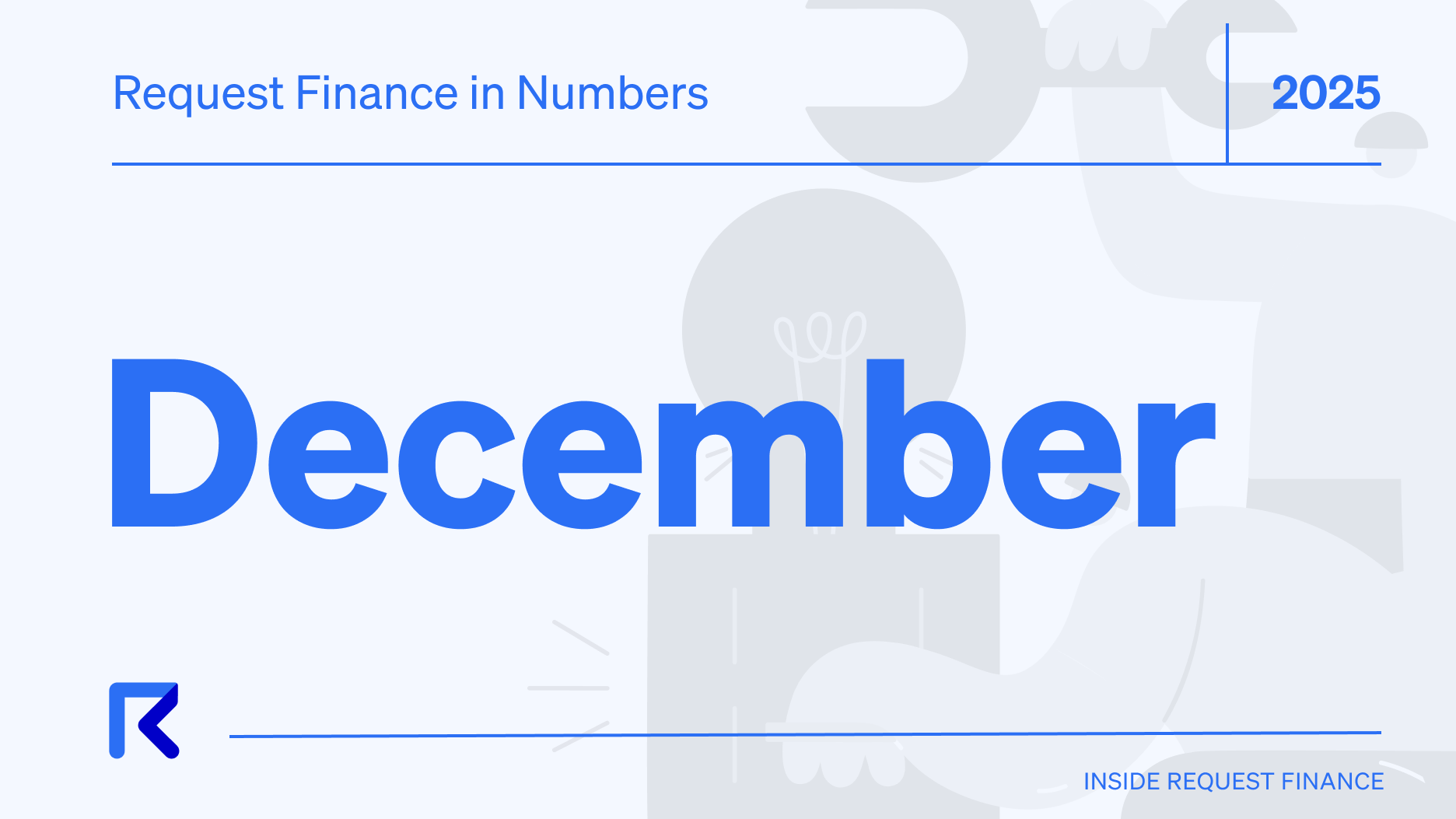Comprehensive Guide to Crypto Wallets, Keys & Addresses
Uncover crypto wallet essentials with our guide. Learn about wallets, keys, and addresses, and make informed choices for your organization's crypto management.

Managing your team's crypto holdings requires a deep understanding of crypto custody.
Much like bank vaults, crypto wallets and keys serve as the primary means of safeguarding your funds and ensuring that they cannot be moved without your consent.
In this blog post, we’ll look into the details of crypto custody, exploring wallets, keys, and addresses in the crypto space, and equipping you with the knowledge to protect your assets effectively.
Crypto Wallets, Keys and Addresses
To understand crypto custody, it’s essential to grasp the fundamental concepts of crypto wallets, keys, and addresses.

Wallets and keys are the crypto equivalent of bank vaults - where your funds cannot be moved without your consent. Understanding them is key to managing your team’s crypto assets.
Crypto wallets are software programs that store private and public keys, which are used to send and receive cryptocurrency respectively. Unlike regular wallets, your crypto always lives on the blockchain, which is a digital ledger that records transactions, and account balances.
Public keys and wallet addresses are like bank account numbers, or wire transfer instructions you can share publicly to receive deposits.
Private keys are like authorized signatures that allow you to send and withdraw money. They are used to “sign”, or authenticate blockchain transactions. Crypto wallets use a seed/recovery/backup phrase, often consisting of a series of randomly generated words.
This phrase acts as a master key, algorithmically generating the private keys associated with your wallet. They must be safeguarded at all costs. Each seed phrase can also be used to generate multiple wallet addresses linked to it.
Ready to Supercharge Your Crypto Accounting?
Stop wasting time, manually creating journal entries. Automate your accounting now, and enjoy error-free reporting
Learn how to scale your company's crypto & fiat financial operations
Your financial complexities are our specialties. Schedule your free consultation today and discover how Request Finance can transform your financial operations
Simplify crypto and fiat financial operations today
Rely on a secure, hassle-free process to manage your crypto invoices, expenses, payroll & accounting.
Different Types of Crypto Wallets
The Web3 ecosystem provides a variety of wallet options, each with its own advantages and disadvantages.
While you are likely to already have existing wallets in use at your organization, understanding different wallets can help you evaluate whether your organization's current crypto wallets are being used in a way that is fit-for-purpose.
For instance, if your company's entire annual payroll is being held on an centralized exchange's hot wallet, you may want to rethink that practice. "We've always done it this way" is a poor reason to maintain an existing process.
Here, we map out what we consider to be the most crucial distinctions between wallet types that you should consider when choosing to adopt wallets for your Web3 organization's needs.
Hot Wallets
Hot wallets, as the name suggests, are connected to the internet, providing quick and easy access to your digital assets.
They are the most common type of wallet and are ideal for storing "petty cash" in crypto, facilitating frequent trading on exchanges, and interacting with decentralized applications (dApps).
The convenience of hot wallets is undeniable; however, their online connectivity exposes them to potential security risks. Hackers may target hot wallets, making them more vulnerable to unauthorized access and theft. It’s essential to implement robust security measures when using hot wallets.
Cold Wallets
Cold wallets prioritize security over convenience. These wallets, often in the form of hardware devices, store your private keys offline, detached from the internet. Think of them as secure deposit vaults for your undeployed assets.
The most popular type of cold wallet is a hardware wallet, which resembles a USB device and provides an extra layer of protection. By keeping your private keys offline, cold wallets significantly reduce the risk of hacking attempts. They are challenging to tamper with physically and offer enhanced security for long-term asset storage.
However, cold wallets are not as readily accessible as hot wallets, as they require performing additional steps to execute transactions.
Hybrid Wallets
There are also a number of crypto wallet providers that aim to give organizations the security of a hardware wallet, with the convenience of hot wallets connected to the internet.
For example, HSM-based wallets like Ledger or Trezor can be connected to a network, or they can also be used in offline mode to protect wallets that are completely disconnected from the internet.
An HSM is a physical computing device purpose-built for secure key storage and cryptoprocessing. Operations like signing transactions can be made with keys while the keys reside within the secure hardware environment. The transactions are verified using Personal Security Devices (PSD) like a bank account token, and signed by the Hardware Security Module (HSM) before being broadcast to the blockchain.
Hybrid wallets can allow you to determine whether a specific wallet address will be cold or not, by deciding whether you will use it to sign transactions. Organizational-grade solutions like the Ledger Enterprise also typically provide a SaaS-like platform. This allows globally-distributed teams to operate from all over the world, and also to automate operations using APIs that connect to a variety of third party dApps and DeFi platforms.
Considering Your Crypto Custody Needs
When it comes to crypto custody, it’s essential to view it as a spectrum rather than a binary choice between self-custody and complete reliance on a third-party custodian.
Two key factors should be considered: who controls the private keys and how many people have that control.
The level of control and the number of parties involved will vary based on the type of wallet chosen.
Self-Custodial Wallets
Self-custodial wallets grant you complete control over your crypto assets by allowing you to own and manage your private keys.
Similar to keeping cash in a safe deposit box at home, self-custodial wallets provide autonomy and eliminate the need for third-party involvement in managing your funds. While self-custodial wallets offer the highest level of control, it's important to note that they also come with added responsibility. Proper security measures must be in place to protect your private keys from loss, theft, or unauthorized access.
However, that is not to say that there are no risks! You rely on your home’s security systems, or the design of the safe deposit box. The a16z crypto blog has a detailed discussion on the risks of self-custodial wallets.
Custodial Wallets
Custodial wallets operate differently from self-custodial wallets. With custodial wallets, you are depositing funds into a crypto wallet whose private keys do not belong to you.
In effect, the institution which controls the private keys to the wallet is either acting as a trustee, or a borrower. The former cannot do anything with your assets - except as instructed, the latter can. Trustee custodians manage your assets solely based on your instructions and cannot access or use your funds without explicit consent. Borrower custodians, on the other hand, may have more flexibility but also pose a higher risk.
In many cases like FTX, a custodian may claim to be a trustee, but in fact is fraudulently using your assets in violation of that trust.
It’s crucial to thoroughly research and choose a reputable custodian if you opt for this type of wallet.
Multi-Signature (Multi-Sig) and Multi-Party Computation (MPC) Wallets
Multi-sig wallets and MPC wallets offer advanced security features by distributing control among multiple keys or parties.
Multi-sig wallets require the use of several private keys to sign transactions, similar to how different officers with distinct keys must authorize the launch of nuclear submarine missiles in movies. This setup ensures that no single individual can unilaterally initiate transactions, adding an extra layer of protection against unauthorized access.
MPC wallets employ sophisticated cryptographic techniques to split a single private key into multiple shards or shares, distributed among authorized signatories. These shares must be combined to reconstruct the key and authorize transactions.
Both multi-sig and MPC wallets provide additional security, particularly for high-value transactions or organizations that require multiple levels of approval. Using multi-sig or mpc wallets can greatly enhance the safety of your crypto treasury by avoiding the single point of failure.
Request Finance offers seamless integration with a wide variety of multi-sig and MPC wallets, providing you with the flexibility to choose the perfect wallet that aligns with your organization's specific requirements and risk tolerance. This ensures that you can optimize your payment processing capabilities while maintaining the highest levels of security and control.
Note: Multi-sig, or MPC wallets are not always self-custodial. The custody is shared, because the keys, or key shards are not always owned by you alone.
Choosing the Right Wallet for Your Business
By exploring various types of wallets mentioned, you can make well-informed decisions that cater to the specific needs of your organization.
Different wallets serve distinct purposes, allowing you to employ multiple wallets to fulfill diverse requirements and ensure the security and efficiency of your crypto operations. You can use multiple wallets to meet various requirements, ensuring the security and efficiency of your crypto operations.
Remember, crypto custody is not a one-size-fits-all approach. By carefully assessing your organization's needs, risk tolerance, and operational requirements, you can find the optimal balance between security and usability. Embracing the right wallet solution empowers you to protect your company's crypto assets and focus on your core responsibilities with peace of mind.
Crypto finance tips straight to your inbox
We'll email you once a week with quality resources to help you manage crypto and fiat operations
Trending articles
Get up to date with the most read publications of the month.
Our latest articles
News, guides, tips and more content to help you handle your crypto finances.











